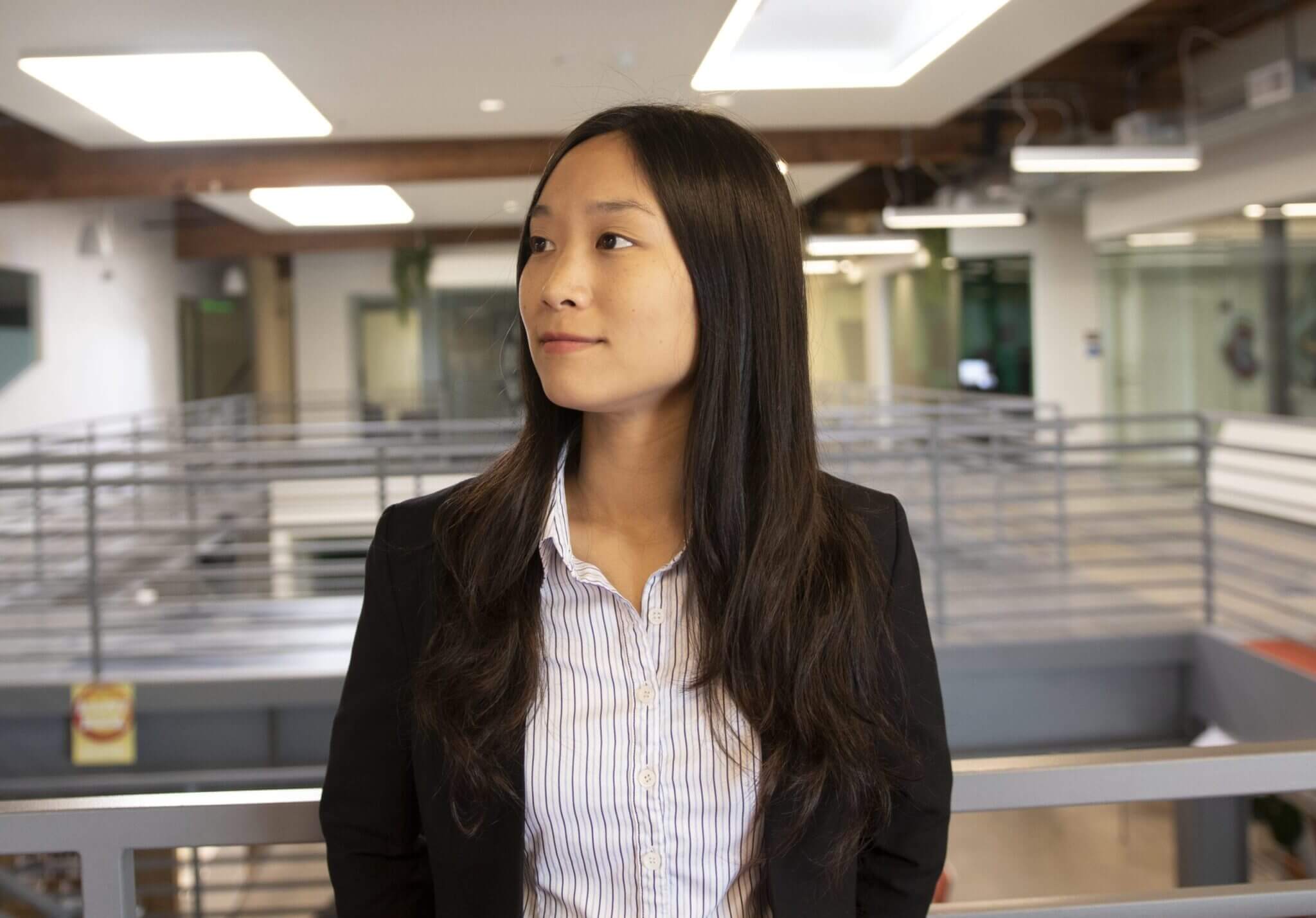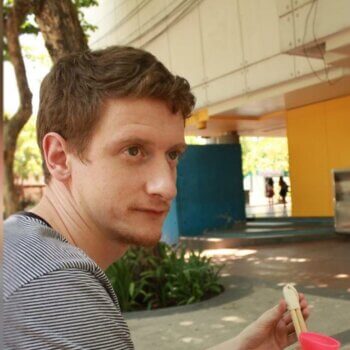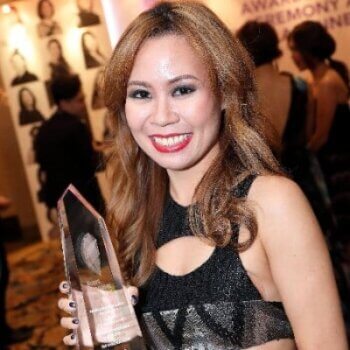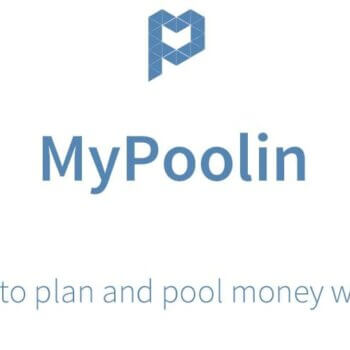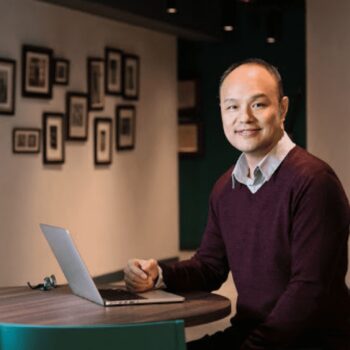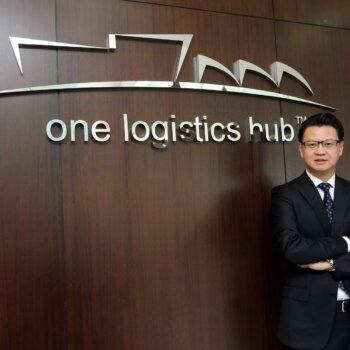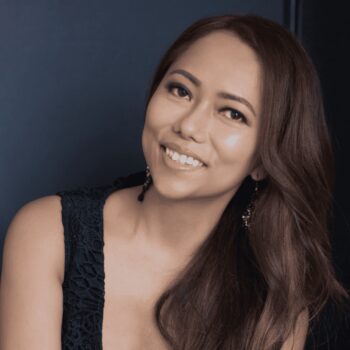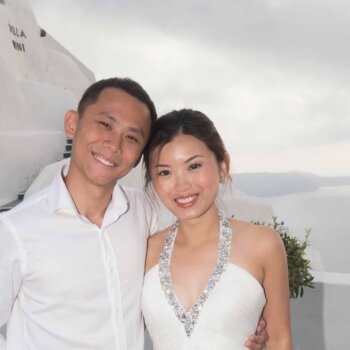(Women on Top in Tech is a series about Women Founders, CEOs, and Leaders in technology. It aims to amplify and bring to the fore diversity in leadership in technology.)
Kari Wu is the Co-Founder of Screen Door Labs, which extends human perception by integrating cutting-edge technologies including augmented reality glasses, drones, and sensors. Kari used to be an international television news reporter for TVBS before founding Screen Door Labs. As an international reporter, she has traveled to more than 20 countries, developing relationships with people from diverse backgrounds. In her search for optimized business models to help people make informed decisions, she completed her MBA and MS in Media Ventures at Boston University and has interned with several virtual reality startups.
What makes you do what you do?
Social impact has been a core of my family for generations. My grandfather was a police officer, my father is a politician, and I became an international news reporter. As I traveled, I interviewed tech and social entrepreneurs around the world and began internalizing their stories; what are the successful patterns and approaches to building a great team able to bring products and services to the world. Inspired by their stories, I later interviewed a diverse range of entrepreneurs and published a book, Startup Fever: How Can Failures Prepare You for Success, but I felt the need to push forward and learn more.
I came to America to learn from its vibrant entrepreneurial ecosystem. I earned my MBA/ MS in Media Ventures from Boston University at the same time Virtual Reality and Augmented Reality were starting to come online. Seth Persigehl, a friend of mine (and later my co-founder), got a call about public safety’s needs for a team communication system. I saw a path for business, emerging technology, and my international experience to come together and help save people’s lives. I couldn’t pass that by.
How did you rise in the industry you are in?
I started my immersive media career from virtual reality. After helping a VC with due diligence of a VR medical device company, I realized the power of AR/VR/MR. I was still working on my MBA but I soon found an internship at the Emblematic Group, working as Nonny de la Peña’s intern much like Palmer Luckey did years ago. Nonny’s journalist background and her social impact VR productions spoke to me. I also kept myself as busy as possible by going to many hackathons, meetups, and conferences in the immersive media industry. I talked to as many people as I could and asked for trends, insights, what works and what doesn’t (both technical wise and business wise). The AR/VR/MR industry is young and open, with different people from different industrial and demographic backgrounds. It’s through talking to people and going to events that I navigate myself in the industry and grow as fast as possible.
Why did you take on this role/startup especially since this is perhaps a stretch or challenge for you (or viewed as one since you are not the usual leadership demographics)?
I embraced challenges growing up. More precisely, I need challenges. I strive to learn new things and find new challenges to tackle. I’ve been told that I couldn’t do something so many times in my life and I have proved that I can do them, and do them well. I would be lying if I told you I’ve never felt scared when embarking on new endeavors, plans, and initiatives, but I love the process and they help me to become a better person on both personal and professional levels.
I am not part of the usual leadership demographic which helps me to be even more fearless. When I started my career in the U.S., I had talked myself down because I am not white, I am a female, I am not an American, and English is not my mother language. Even going to events standing next to people was daunting. However, I pushed myself, and soon I found that there are some perks, too. I am an odd case so people either remember me better or not at all. Thanks to many talented and diligent entrepreneurs who share some of the categories I fit into, people sometimes even associate me with some great minds. Last but not least, the software business is a global business. The fact that I am from Taiwan, speak Mandarin Chinese and had been to many countries provide us with a great potential in terms of partnership and market opportunities.
Do you have a mentor that you look up to in your industries or did you look for one or how did that work?
I have several mentors I trust and look up to in tech and life. As a former reporter, I make sure I talk to experts based on specific questions. I keep in touch with my former supervisors, professors, co-workers, and friends, so when I am not sure about who may be the best person to reach out, I have a group of people who know me well and can point me to the right direction.
How did you make a match if you did, and how did you end up being mentored by him/her?
I would say most of my mentors become my mentors because I keep following up with them, sharing information they may be interested in and telling them my stories. I email my mentors our company updates, industry news, my personal learning, thoughts, and sometimes more; it all depends on who they are/how much time they have and what type of relationship we have. Most updates are done through emails and social media and sometimes in-person meetings and calls. I think being able to tell our stories with messages, emails, and videos help me stay at the top of my mentors’ minds.
As a leader how do you spot, develop, keep, grow and support your talent?
I do it by asking questions. What are they good at? Why do they want to help our startup? What do they see themselves doing now and at a future date? What does it take from us and from them to get there? What’s their expectation in terms of time and financial rewards? I have a fairly good sense of how people think and what they care about (again, thanks to my reporter career!); my understanding can be even closer to the fact when I have conversations with them. We are still a very small startup and I cannot brag about growing our talent pool yet, but I believe there are always ways to do things that meet both individual goals and company goals. Figuring that out is my job. That is also how we grow as a team and making sure all the investment dollars are leveraged to the greatest extent.
Do you consciously or unconsciously support diversity and why?
I love diversity and care about equality from my heart. Without diversity, the world is too boring. Without equality, I do not know how to justify the rights I have. Born and raised in Taipei, the capital city of Taiwan, I was much more of a mainstream Taiwanese. In college, my first reporting story was the gay parade and my first feature story was about immigrants from China and Southeast Asian countries.
Living in the U.S., such a diverse country, I suddenly became part of the minority and it’s eye-opening to see things from this angle. The level of cultural/gender awareness a lot of people have here is impressive and respectful. For that, I try my best to do the same and payback to the community whenever I can. I have the privilege to get help from many people and I know how deeply and eagerly they want to see me thrive. I started to feel how they feel after starting to navigate some connections of mine in their career exploration.
What is your take on what it takes to be a great leader in your industry and as a general rule of thumb?
I had read articles about the importance of being a genuine person in the business. I started to know more and deeper about what that means after getting into the world of startups. It’s all about connecting the dots and navigating yourself and your company towards the right directions. If you are not a nice and genuine person, no matter how much money you have or how strong your skillsets are, people may not be on your side for long. Those who stand out at the end of the day are those who get people’s hearts and minds.
Advice for others?
Everyone has different strengths – look for someone who understands your strengths and can bring the most potential in you. Being a leader itself is having to keep growing as an individual and having the great cycle of “feedback-growth” is tremendously helpful.
If you’d like to get in touch with Kari Wu, please feel free to reach out to her on LinkedIn: https://www.linkedin.com/in/kariwu/
To learn more about Screen Door Labs, please click here.
